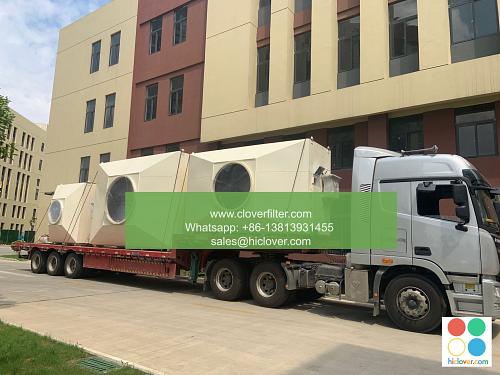The Connection Between Air Filters and Respiratory Health

Air filters play a crucial role in maintaining good respiratory health by removing airborne pollutants and allergens from the air we breathe. In this article, we will explore the connection between air filters and respiratory health, highlighting various application areas and the importance of using high-quality air purification systems.
Indoor Air Pollution: A Growing Concern for Respiratory Health
Indoor air pollution is a significant concern for respiratory health, with pollutants like particulate matter (PM), nitrogen dioxide (NO2), and volatile organic compounds (VOCs) contributing to poor air quality. These pollutants can exacerbate respiratory conditions like asthma, chronic obstructive pulmonary disease (COPD), and other breathing difficulties. Air filters can help mitigate this problem by removing up to 99.97% of airborne particles, including dust, pollen, and other allergens.
HEPA Filters: The Gold Standard for Air Purification and Respiratory Health
High-Efficiency Particulate Air (HEPA) filters are the gold standard for air purification, capturing 99.97% of particles as small as 0.3 microns. HEPA filters are widely used in hospitals, clinics, and other healthcare settings to prevent the spread of airborne infections and improve respiratory health. They are also commonly used in residential and commercial settings to improve indoor air quality and reduce the risk of respiratory problems.
Application Areas: Where Air Filters Can Make a Difference in Respiratory Health
Air filters can be applied in various settings to improve respiratory health, including:
* Home air purification systems: Whole-house air filtration systems can help remove airborne pollutants and allergens, improving indoor air quality and reducing the risk of respiratory problems.
* Hospital and healthcare settings: HEPA filters are widely used in hospitals and clinics to prevent the spread of airborne infections and improve respiratory health.
* Commercial buildings and offices: Air filters can help improve indoor air quality in commercial buildings, reducing the risk of respiratory problems and improving productivity.
* Industrial settings: Air filters can help remove airborne pollutants and particulate matter in industrial settings, improving respiratory health and reducing the risk of occupational lung diseases.
Advanced Air Filtration Technologies: Improving Respiratory Health through Innovation
Advanced air filtration technologies, such as ultrafine particle filters, activated carbon filters, and UV air purifiers, can provide additional benefits for respiratory health. These technologies can help remove a wider range of airborne pollutants, including gases, odors, and microorganisms.
Conclusion: The Importance of Air Filters for Respiratory Health
In conclusion, air filters play a vital role in maintaining good respiratory health by removing airborne pollutants and allergens from the air we breathe. By highlighting various application areas and the importance of using high-quality air purification systems, we can improve indoor air quality and reduce the risk of respiratory problems. Whether you’re looking to improve the air quality in your home, hospital, or commercial building, air filters are an essential component of a comprehensive respiratory health strategy. Prompt

